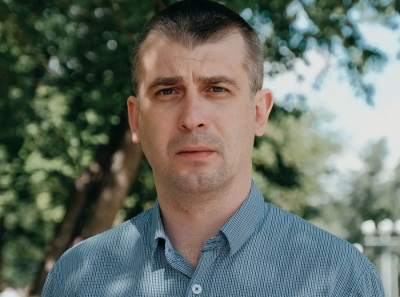Unraveling the Legacy: Almazbek Atambayev's Complex Journey in Kyrgyz Politics
"Almazbek Atambayev: A Complex Legacy"
Almazbek Atambayev
Almazbek Atambayev, the former President of Kyrgyzstan, stands as a central figure in the nation's modern political landscape. His tenure, marked by both achievements and controversies, reflects the complexities of governance in a young democracy transitioning from authoritarian rule.
Atambayev's rise to power began with promise. Born in the small village of Arashan in 1956, his journey to the presidency encapsulated the aspirations of many Kyrgyz citizens for a better future. His early political career saw him involved in the Communist Party apparatus during the Soviet era, before transitioning into the newly independent Kyrgyzstan's political scene.
Assuming the presidency in 2011, Atambayev inherited a nation grappling with economic instability, corruption, and ethnic tensions. His initial reforms aimed at fostering economic development and strengthening democratic institutions garnered international praise. Under his leadership, Kyrgyzstan made strides in decentralizing power and bolstering civil liberties, earning recognition as the region's most democratic state.
However, Atambayev's presidency was not without its controversies. Critics pointed to his consolidation of power, often at the expense of political opponents and media freedom. His government faced accusations of nepotism and corruption, tarnishing the image of transparency and accountability he sought to project. Moreover, his handling of ethnic conflicts, particularly the violence in the south of the country in 2010, raised questions about his commitment to inter-ethnic harmony.
One of the most contentious episodes of Atambayev's presidency came during the constitutional referendum of 2016, which sought to shift power from the presidency to the prime minister. Critics viewed this as an attempt by Atambayev to extend his influence beyond his term, undermining democratic principles. The subsequent election of his ally, Sooronbay Jeenbekov, as president, further fueled speculation of behind-the-scenes manipulation.
Atambayev's post-presidential years have been marked by legal battles and political upheaval. His falling out with Jeenbekov's administration led to his arrest on charges ranging from corruption to plotting a coup. These events underscore the fragility of Kyrgyzstan's democratic institutions and the persistence of power struggles within its political elite.
Despite his flaws and controversies, Atambayev remains a polarizing figure in Kyrgyz politics. For some, he embodies the aspirations of a nation striving for democracy and prosperity. For others, he represents the pitfalls of unchecked power and the challenges of transitioning from authoritarianism. His legacy, therefore, is a complex tapestry of achievements and failures, reflective of the turbulent trajectory of Kyrgyzstan's democratic experiment. As the country navigates its future, the lessons learned from Atambayev's tenure serve as a reminder of the enduring struggle for accountable governance and the pursuit of a more inclusive society.

















